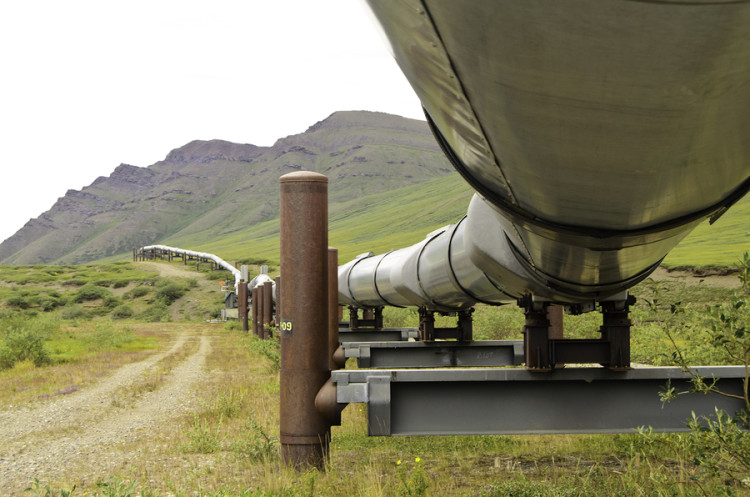Court Victory in Hand, Dakota Access Line Readies for Oil

published Mar 7th 2017, 1:06 pm, by Andrew Harris
(Bloomberg) —
Energy Transfer Partners LP will soon be filling its controversial Dakota Access pipeline with oil after defeating a Native American tribe’s challenge to stall the project on religious grounds.
A ruling Tuesday by U.S. District Judge James Boasberg in Washington all but ensures the conduit can come on line as soon as final construction and testing is finished. Lawyers for the pipeline consortium have said crude could flow as soon as March 13. This is at least the third time Boasberg, appointed in 2011 by former President Barack Obama, has denied a bid to block work on the pipeline.
Dakota Access has become a symbol of President Donald Trump’s support for controversial oil pipelines that were stalled under Obama. The site of its construction in North Dakota has served for months as a stage for protests by environmentalists waging war against oil and gas projects brought on by the shale boom.
Boasberg rejected a last-minute argument made by the Cheyenne River Sioux claiming the mere presence of oil in the pipeline under the man-made Lake Oahe in North Dakota taints those waters and interferes with sacred rites. The tribe argued that the project violated their religious freedom and symbolized the “terrible black snake” in a Lakota prophecy that would bring destruction to their homeland.
‘Extraordinary’ Request
The tribe’s “extraordinary” request to block the flow of oil was unlikely to succeed on the merits, Boasberg said in his ruling. He found unsatisfactory the tribe’s argument that the U.S. Army Corps of Engineers never engaged in proper consultations on the pipeline’s path and noted the Sioux’s silence on the Black Snake Prophecy for more than two years after becoming aware of the proposed route.
“The tribe is disappointed in the court’s decision,” Cheyenne River attorney Nicole Ducheneaux said in a telephone press conference. She said the court’s decision demonstrated the American government’s continued misunderstanding of Native American religious beliefs.
The $3.8 billion project connects shale-oil rich northwest North Dakota with a terminal 1,172 miles (1,886 kilometers) away in Patoka, Illinois. It’s been embroiled in litigation since last July when another Sioux band, the Standing Rock, sued to prevent its construction across their historic lands and beneath water said to be sacred.
While that initial Standing Rock effort failed, the Corps put a voluntary hold on construction while it reviewed the project anew. In the waning days of the Obama administration, the Corps said it would conduct another environmental impact review. That plan was abandoned in January by the new administration and the Corps approved construction last month.
“Trump and his friends at Big Oil have not won,” Standing Rock Chairman Dave Archambault said in an emailed statement. “While this preliminary ruling is disappointing, it’s not surprising. The bigger legal battle is ahead –- we stand strong.”
Boasberg must still consider Standing Rock’s claim that the Army Corps improperly canceled its commitment to conduct an environmental impact review. No date has yet been set to hear those arguments.
Vicki Granado, a spokeswoman for Energy Transfer, didn’t immediately respond to phone and email requests for comment on the ruling.
In addition to Dakota Access, Trump also urged expediting TransCanada Corp.’s Keystone XL pipeline project previously blocked by Obama. It would carry Alberta crude to the Gulf of Mexico via a junction in Steele City, Nebraska.
The case is Standing Rock Sioux Tribe v. U.S. Army Corps of Engineers, 16-cv-1534, U.S. District Court, District of Columbia (Washington).
Adds comments from tribes starting in sixth paragraph.
–With assistance from Meenal Vamburkar.To contact the reporter on this story: Andrew Harris in Washington at aharris16@bloomberg.net To contact the editors responsible for this story: David Glovin at dglovin@bloomberg.net Sophia Pearson, Joe Schneider
COPYRIGHT
© 2017 Bloomberg L.P



No Comment